MAIN RESEARCHERS
Anna Gil-Bardají
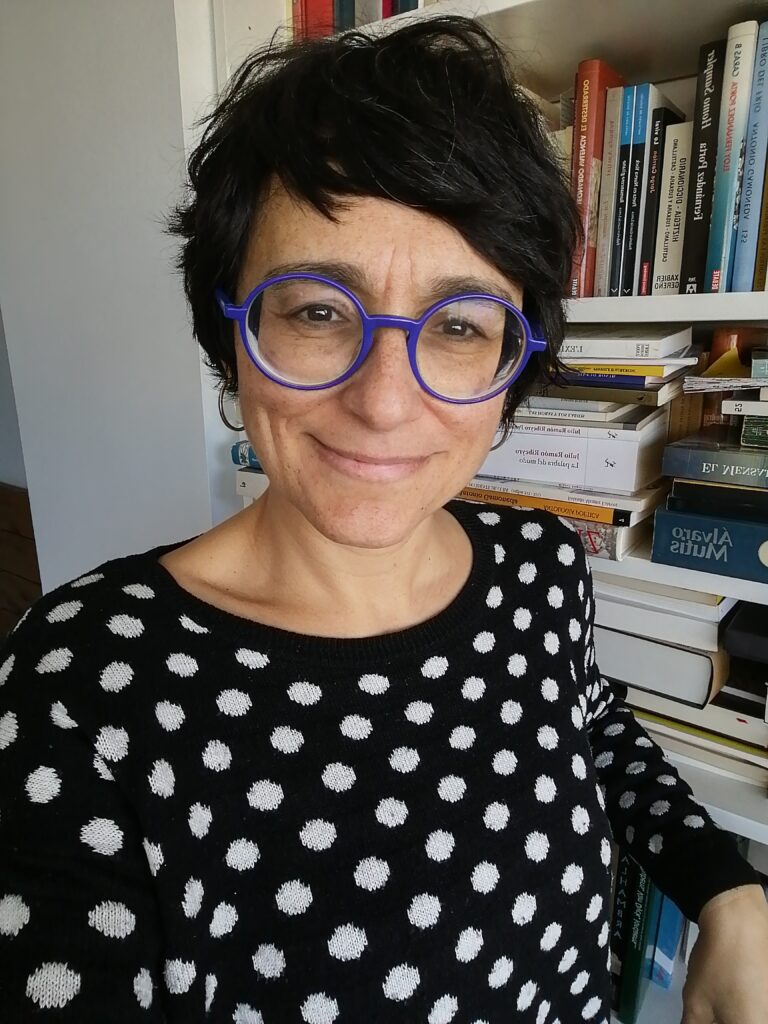
Anna Gil-Bardají holds a Ph.D. in Translation Studies. Since 2001, she lectures Arabic language and translation from Arabic to Spanish and Catalan at Universitat Autònoma de Barcelona (UAB), Spain. She also lectures interpreting in public settings in the Official Master in Translation, Interpreting and Intercultural Studies (UAB), and Arabic language and literature in the Master in Arab World at University of Barcelona (UB).
In the last years her research has focused on translation theory, discourse analysis in translation from Arabic to Spanish and in Translation and Interpreting in Public Services (TISP).
She has translated several books from Arabic and French to Spanish and Catalan, and published many articles on translation theory, Critical Discours Analysis (CDA) and Public Service Interpreting (ISP). She coordinates the UAB Master of Contemporary Arabic Studies (MCAS) and she is an active member of MIRAS research group.
Gema Rubio

Gema Rubio Carbonero is a Serra Húnter Senior Lecturer in the department of Translation, Interpreting and East Asian Studies at Universitat Autònoma de Barcelona, where she teaches various subjects of English language, research methodology and translation in both undergraduate and master studies.
She has previously worked as a researcher at the department of English Philology at Universitat Autònoma de Barcelona. Prior to that, she worked at GRITIM (Interdisciplinary Research Group on Immigration) at the department of political and social sciences (Pompeu Fabra University) as a postdoctoral researcher. She holds a PhD on Linguistic Communication and Multilingual Mediation (Pompeu Fabra University). Her research interests deal with public discourse analysis and diversity issues (especially with discriminatory discourse on immigration), with interculturality, multilingualism and social inclusion. She has participated in several funded R+I national and international projects and published a number of articles, books and chapters related to the above mentioned research lines. She has also delivered more than twenty talks and invited talks in different well established international conferences.
MEMBERS OF THE PROJECT
Mohammed Jasim Aal-Hajiahmed
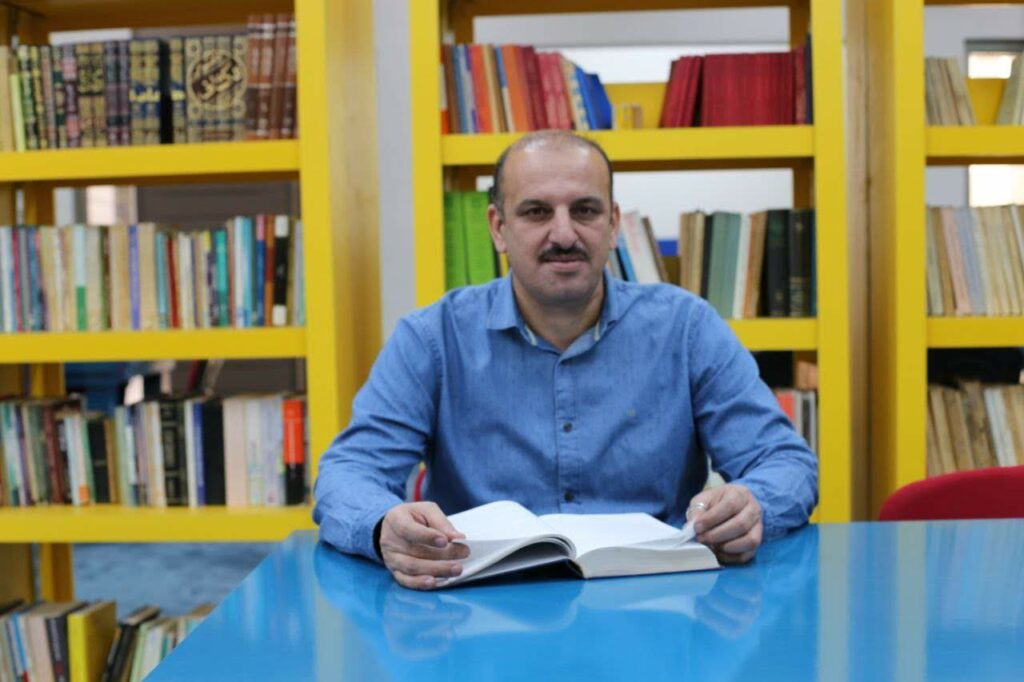
Mohammed Jasim Mohammed Aal-Hajiahmed holds a Ph.D. in Conference Interpreting from the Universitat Autònoma de Barcelona (UAB). He is a staff member at Mosul University, working in the Department of Translation within the College of Arts.
Since 2011, he has been teaching a variety of subjects related to Translation and Interpreting, covering both English to Arabic and Arabic to English translation. Presently, he is instructing courses in Audiovisual Translation for English and Arabic combinations within the same department.
He earned his BA degree in Translation Studies from the University of Mosul and completed his MA focusing on the translation of literary texts, specifically fairy tales, from English into Arabic in 2011. During his MA studies, he was granted a research scholarship from Indiana University, USA, to support his project. Subsequently, he received a Ph.D. scholarship from UAB in collaboration with the Castellar de Valles City Council in Barcelona in 2018. His doctoral research, titled “Cognitive Processes in Simultaneous Interpreting: A Study of Problems and Interpreters’ Strategies,” earned him the distinction of Excellence with Honor.
Additionally, Mohammed has translated several publications from English into Arabic and has authored eight papers within the field of translation studies and simultaneous interpreting (English-Arabic-English), which have been published in various local journals. Furthermore, Mohammed possesses expertise in library management, having served at Mosul University Library for twenty years and directing it for six years. In recognition of his expertise, he was selected as a UNESCO consultant for the restoration project of Mosul University Library in 2023. Additionally, he received research scholarship from the Nahrein Network to conduct research at prestigious institutions such as the British Library, Oxford University, Cambridge University, and University College London (UCL) in 2019 and 2022. He has also actively participated as a speaker in various international conferences held in the USA, UK, Spain, and France.
Marta Arumí

Marta Arumí is Full Professor in the Department of Translation and Interpreting and East Asian Studies at the Universitat Autònoma de Barcelona. She holds a PhD in Translation and Interpreting from Pompeu Fabra University, where she obtained the extraordinary doctoral award. She also holds a degree in Translation and Interpretating from Universitat Autònoma de Barcelona.
She studied the Master’s Degree in Conference Interpreting at the Universidad de La Laguna and the Master’s Degree in Training for Trainers in Conference Interpretating at the School of Translation and Interpretation at the University of Geneva.
She teaches conference interpreting at the Faculty of Translation and Interpreting at the UAB and is the coordinator of the Master’s Degree in Conference Interpreting (MUIC).
She has been the main researcher of the MIRAS research group since its creation in 2009 and has led several competitive research projects. Her research interests focus on the didactics of conference interpreting and Public Service Interpreting. She is the author of many specialized articles published in national and international journals and has supervised several doctoral theses.
Carmen Bestué

Carmen Bestué holds a JD in Law from the University of Barcelona, a PhD in Theory of Translation from the Autonomous University of Barcelona and a Diploma in Comparative Law from the University of Paris II, Panthéon-Assas.
She has practiced as an Attorney at Law in Spain specializing in civil, commercial and criminal law matters and has also worked as a translator and interpreter of French and English for criminal courts and law enforcement bodies.
Since 2003, she is professor at the Faculty of Translation and Interpreting of the Autonomous University of Barcelona, where she has taught undergraduate, postgraduate and master’s degrees.
She has attended numerous international conferences and has been invited to give plenary seminars and conferences at the Universities of Geneva, Jaume I of Castellón, Alicante, Salamanca, Vigo, La Laguna, Arizona and Mexico, among others. She has been a visiting researcher in Mexico City, Tucson, Lima, Paris and New York. She has participated and is currently participating in more than 16 research projects.
Albert Branchadell

Albert Branchadell holds a doctorate in Catalan Linguistics from Universitat Autònoma de Barcelona and in Political Sciences from Pompeu Fabra University, where he completed the doctoral program in Political and Social Theory.
He is currently an associate professor in the Department of Catalan Studies at UAB and teaches sociolinguistics within the Catalan Studies (Literary and Linguistic Studies) degree. He also collaborates with the university master’s degree in Conference Interpretation (MUIC) of the Faculty of Translation and Interpretation, of which he was dean between 2016 and 2022, as well as with the doctoral program in Translation and Intercultural Studies of the Department of Translation and Interpreting and East Asian Studies.
He has done research in theoretical linguistics, sociolinguistics, translation studies and political philosophy applied to language policy, especially in connection to regional or minority
Francisco Collazos

Francisco Collazos is a graduate of Medicine and Surgery from Universidad Autónoma de Madrid. During his medical residency, he specialised in Psychiatry at the Hospital Universitario Gregorio Marañón. He now holds a PhD in Psychiatry issued by Universitat Autònoma de Barcelona.
Since 2001, he has worked as an adjunct psychiatrist at Hospital Universitari Vall d’Hebron in Barcelona, where he coordinates the Cross-cultural Psychiatry Programme and the Community Psychiatry Section. Moreover, since 2017, he has been Chief of the Mental Health Area at Hospital Sant Rafael. He works as an adjunct lecturer at the Psychiatry and Legal Medicine Department at the Universitat Autònoma de Barcelona.
He has also been the main researcher in plenty of projects regarding immigrants’ mental health, which were funded by competitive public calls and of which he has published several articles and book chapter.
Sofía García

Sofía García-Beyaert, PhD is assistant professor at the Department of Translation, Interpreting and East Asian Studies (DTIEAO). She has been a member of the research group MIRAS since 2010 and a Serra Húnter Fellow since 2020.
She earned her doctorate in public policy –with an international mention– (Universitat Autònoma de Barcelona in Spain) after completing a Masters in Social and Political Sciences (Pompeu Fabra University in Spain) and graduating with a triple BA –cum laude– in Applied European Languages with a double specialisation in economic and legal translation and conference interpreting (Universidad de Granada in Spain, Université Aix-Marseille in France, Northumbria University in the UK). p
Her interdisciplinary curiosity and her commitment to the advancement of professional interpreting in social and community settings lead her to take on doctoral studies in public policy at the Institute for Government and Public Policy (IGOP) on the institutionalization of community interpreting. Alongside the writing of her dissertation, Sofía was one of the authors of the foundational textbook “The Community Interpreter: An International Textbook,” (2015) Culture and Language Press, Bancroft, M. et al (Eds). Within this team effort, Sofía identified the concept and coined the term “communicative autonomy” with an aim to enhance interpreting’s key role in supporting communication rights, and with roots in the research work for her doctoral dissertation: Cross-Linguistic Communication and Public Policy: The Institutionalization of Community Interpreting (2016). Her research stays as a visiting scholar at the Centre for Ethics and with the Ethnic and Pluralism Studies Program at Toronto University (Canada) had a great influence on both endeavors.
Among her interdisciplinary contributions that stride interpreting studies and public policy analysis, the following publications are worth highlighting: Key external players in the development of the interpreting profession (2015), Routledge Handbook of Interpreting, Mikkelson, H. and Jourdenais, R. (Eds); Public Concern, Public Policy and PSI: The Public Dimension of Language Interpreting (2017), Revista Canaria de Estudios Ingleses.
Her pedagogical experience has unfolded both within institutions of higher education and outside the university system. She has worked as an educator in a wide variety of circumstances that include an independent primary school in the US school system and the organizing of continuing education trainings for adults who work as professional community interpreters. These experiences give rise to an additional research interest focused on pedagogy, interpreter training and new technologies.
Marta Jiménez

Marta Jiménez is a Midwife Coordinator at the Sexual and Reproductive Health Care (ASSIR) of Mútua Terrassa (in the cities of Terrassa, Viladecavalls, Rubí, Sant Cugat, and Olesa de Montserrat).
She graduated in Nursing from Universitat Autònoma de Barcelona. She also holds a Bachelor of Science in Midwifery conferred by Thames Valley University (London). The Spanish Ministry of Education and Science validated her official diploma of Nurse Specialist in Obstetrics and Gynaecology. She also holds a postgraduate degree in Sexual and Reproductive Health (Universitat de Lleida) and a MA in Midwifery (University of West London). She has experience in working as a midwife in hospitals and primary healthcare and in teaching at Universitat Central de Catalunya-UVIC-FUB as head teacher of the subject “Nursing Care in Motherhood and Reproductive Health.” Presently, she is doing a doctorate at University of Barcelona (UB).
Mario Malo

Mario Malo is a postdoctoral researcher at the MIRAS (SGR) group at Universitat Autònoma de Barcelona and holds a PhD in Historical Sociology and Anthropology of Japan granted by the same institution. He also has a Master’s degree in Japanese Language and Culture from Takushoku University, Tokyo, and a double Master’s degree in East Asian Studies –specialising in Japan and Korea– from Universidad de Salamanca.
He has done research stays at SOAS (London) and Ritsumeikan University (Kyoto), and he has been given scholarships by the Japanese Ministry of Culture (Takushoku University, Tokyo) and the Japan Foundation (Kansai Centre, Osaka).
Currently, he is a lecturer on the Master of Japanese Studies at UNIZAR and in East Asian History and Anthropology at UEZ, a course coordinator on the Master’s Degree of International Affairs and Diplomacy at UOC-UNITAR, and a temporary lecturer on the Degree of International Relations (East Asian), and the Master of Cultural Management from the same university. He balances these academic roles with working as an exhibit coordinator.
Some worth-highlighting publications of his are: “Redes comunitarias, Sosaeti 5.0 e ingreso mínimo vital como elementos potenciales de fijación de población en el Japón Vaciado: Una aproximación socio-antropológica al discurso, la integración y el impacto social. In C. Tirado (Dir), Retos demográficos y sociedad 5.0 en Japón. Una perspectiva jurídica y social en el entorno internacional, pp.33-55, Thomson Reuters-Aranzadi; “Sociedad Civil, comunidad e innovación para la recuperación de los recursos naturales del área de Iitatemura: El Madei Raifu tras doce años de la debacle de Fukushima”. In D. Almazán (coord.) Japón a la Vanguardia, pp.281-312, Colección Estudios Japoneses Federico Torralba, Universidad de Zaragoza; “Glocalismo, localismo y transculturación en la periferia: trayectoria histórica de los movimientos sociales en Okinawa”. In E, González (ed.). La búsqueda de Okinawa, Colección Biblioteca Estudios Japoneses UAB, Ediciones Bellaterra, Barcelona; “Brief socio-historical tour of the onto- epistemological developments of civil society in Japan”, Deusto Journal of European Studies, in EU-Asia Pacific social and cultural dialogue: involving civil society in interregional relations, no. 05, pp.75-107.
Marc Miranda
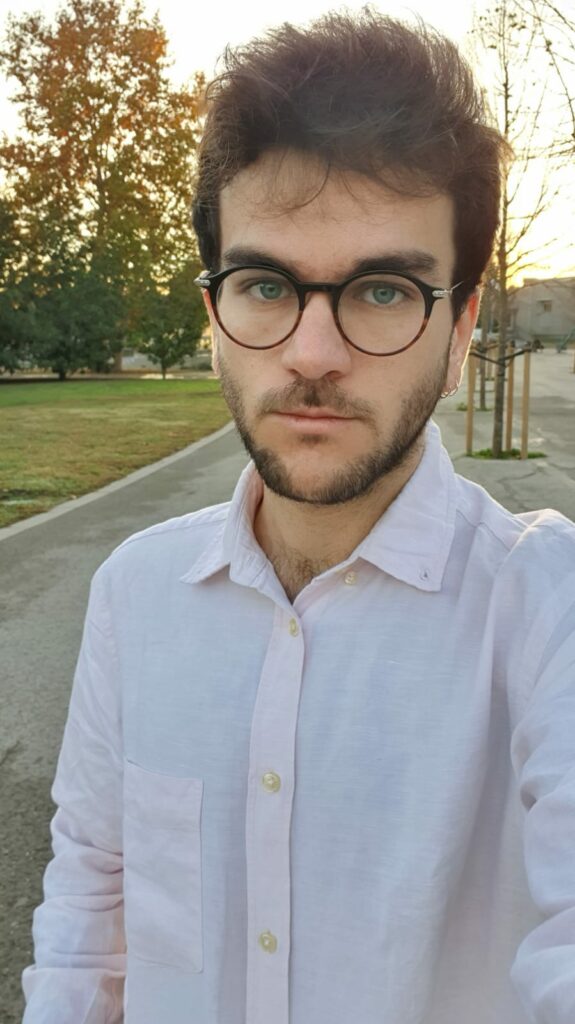
Marc Miranda is a first-year predoctoral researcher at the MIRAS research group in non-professional intercultural mediated communication. He holds a BA in Translation and Interpreting (2022), a BA in Journalism (2020) and an MA in Translation and Intercultural Studies (2023), all attained at Universitat Autònoma de Barcelona.
Previously, he worked as a freelance translator and research technician in a Catalan network for research in accessibility. He also partook in academic conferences such as the International Symposium for Young Researchers in Translation, Interpreting, Intercultural Studies and East Asian Studies.
Liudmila Navtanovich

Liudmila Navtanovich graduated from Saint-Petersburg State University with a Degree in Russian Philology and received her Ph.D. Degree in Philology at the same university. She has lectured at Saint-Petersburg State University, University of Barcelona (as a Guest Lecturer) and Universitat Autònoma de Barcelona.
At present she is a Serra Hunter Lecturer at the Department of Translation and Interpreting at the UAB and a Coordinator of the Russian section.
Her main expertise as a researcher is the Russian and Slavic Studies, especially the history of the Old Slavonic and Old Russian translations, on which she has many publications, including three books (as an author and co-author).
As for her teaching career, it includes 30 different courses taught, among them several courses for MA and Ph.D. students.
She has been professional translator and interpreter since 2006. As volunteer interpreter collaborates with Red Cross and other non-governmental organisations.
Mariana Orozco

Mariana Orozco holds a degree and a doctorate in Translation and Interpreting and won the special doctoral award of the UAB with her PhD Dissertation “Building and validating measuring instruments for the acquisition of translation competence”.
She teaches general and specialised translation from English to Spanish as well as Methodology of Translation at the undergraduate Degree in Translation and Interpreting and at the MA in Translation, Interpreting and Intercultural Studies at the Universitat Autònoma de Barcelona. She is also the coordinator of the Translation and Intercultural Mediation programme of this MA.
She is the author of the book “Methodology for English to Spanish Translation” (ed. Comares, 2012) as well as more than 50 translation journal articles and book chapters. Her research focuses mainly on the methodology of translation and on specialised translation. She has been part of three consolidated research groups and is currently a member of MIRAS (2014SGR545). Since 1996, she has participated in a dozen research funded projects of European, national and international scope, and has been a visiting researcher in the UK on several occasions.
Lourdes Rubio
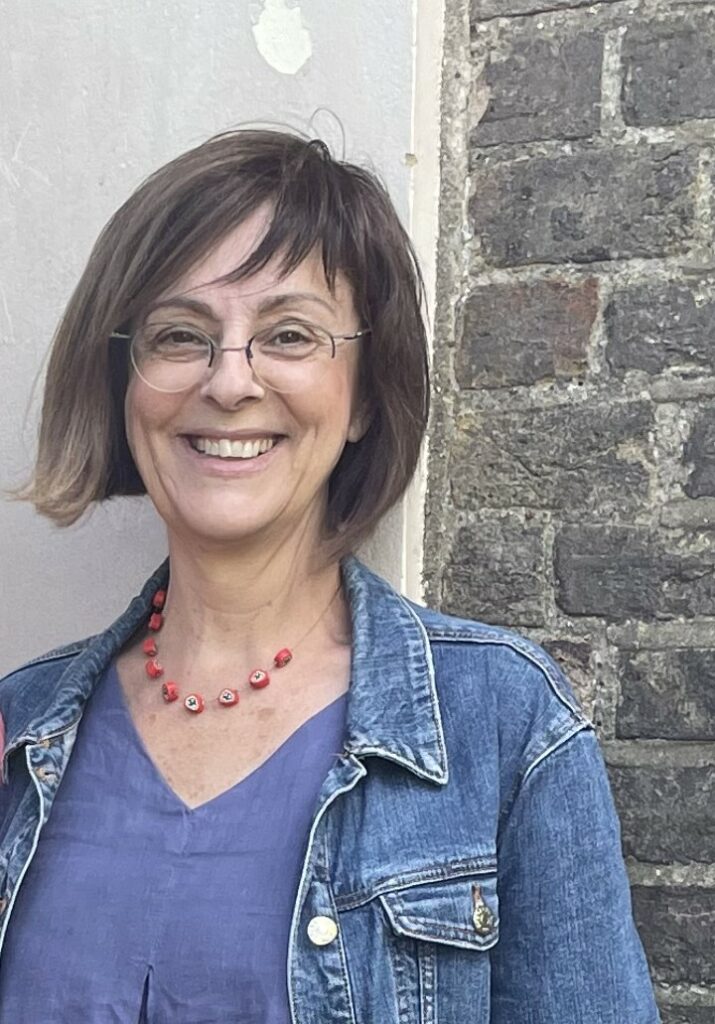
Lourdes Rubio has experience in clinical care and has academic training in health sciences –with a diploma in Nursing– and in human and social sciences –with a Degree in Humanities and a Diploma of Advanced Studies in Sociology. Her background led her to present in 2014 her thesis on social determinants and healthcare needs of Maghrebi users of the public health service in Catalonia (Magribins a Catalunya: determinants socials i necessitats de salut).
The relationship between immigration and health has been one of the lines of research she has kept exploring as a doctor. Her participation in funded projects such as the European project SPIN (SPort for INclusion) and the project LEARNING to Live and Work Together: Assisting Higher Education Vulnerable Migrant Students Through Digital Technology Enhanced Support and Transformative Action, has allowed her to continue with the interdisciplinary research involved in health and social sciences, although she has never abandoned the research entirely focused on health sciences. In this regard, it is worth mentioning her work dedicated to the care and well-being of hospitalised patients and her work oriented to creating support tools for decision-making in the clinical context (HATD).
Since October 2018, she has been directing the UNESCO Chair for Intercultural Dialogue in the Mediterranean at Universitat Rovira i Virgili and the research group UNESCOMED. Both the Chair and the research group allow her to delve into the fields that interest her –social sciences and healthcare sciences– from a double perspective: that of research and that of the university’s commitment to society. The Chair channels the research group’s results towards society through events to raise awareness, train and disseminate the intercultural dialogue between the two shores of the Mediterranean. Presently, she is a research collaborator on the H2020 project CONNEKT regarding radicalisation prevention. She was tasked to manage the ethical approval of the project before the corresponding committee, an objective achieved regarding both its global dimension (13 partners and 10 countries) and the specific dimension of its development in Spain.
Begoña Ruiz

Begoña Ruiz holds a BA in Romanic Philology, a Degree in Modern Mandarin and an MA in Immigration and Intercultural Education. She currently works as translator, interpreter, and mediator specialised in Chinese language and community at public services.
She has worked in several city councils: Santa Coloma de Gramenet, Badalona and Barcelona, where she currently works in the XEIX project. Consultancy, research, translation and mediation or training for the Migration office at the Generalitat de Catalunya, Education Department of the Generalitat de Catalunya, UnescoCat, Casa Asia, University of Barcelona, Universitat Autònoma de Barcelona, Pompeu Fabra University, Universidad de Alcalá de Henares, Fundación Instituto Confucio de Barcelona, Pymec, Confederació de Comerç de Catalunya, Agencia de Salud pública de Barcelona and other organisations of the third sector. She is author of Bali, yo soy de China (La Galer) and Mirades Xineses (Save the Children Catalunya).
Abdallah Tagourramt el Kbaich

Abdallah Tagourramt is a graduate in Arabic Studies and Hispanic Studies. He also holds a Master’s degree in Construction and Representation of Cultural Identities, a Master’s degree in University Training for Novice Professors, and a PhD. in Cultural, Literary and Linguistic Studies (UB). He is accredited as a tenure-track lecturer (AQU) and an assistant doctoral lecturer (ANECA).
Since 2001, he teaches Arabic and translation in universities and public and private centres, such as Universidad de Agadir, University of Barcelona, Pompeu Fabra University, Universitat Autònoma de Barcelona, and ESADE, among others. Alongside with his teaching, his research career encompasses philological studies, translation, and the construction of cultural identities. His main contribution in this context is putting translation at service of philology and philology at service of translation. From a multidisciplinary perspective and on the basis of diverse but converging hypotheses and opinions, the acceptance of the science of the ancients and modern European science in Arabic culture has been developed in his work in accordance with the comprehensive use of bibliography written in Arabic and other languages. He has published several works on the topic in indexed journals such as TRANS. Revista de Traductología, (24/2020); MonTI. Monografías de Traducción e Interpretación, (15/2023); Quaderns. Revista de Traducció, (30/2023); Revista de Filología de la Universidad de la Laguna, (47/2023). He wrote the book El tejido del pensamiento árabe: la traducción en sus fases clásica y moderna (Bellaterra Edicions, 2022). He took part in several R&D research projects.
Presently, he holds a postdoctoral fellowship at the Translation and Interpreting Faculty-UAB within the framework of the project “Mediated intercultural communication in health services”. He has participated in several national and international conferences and is a member of the research groups 1) Cartografies Literàries de la Mediterrània-UB and 2) Mediació, Interpretació i Recerca en l’Àmbit Social-UAB.
Valeria Tonioli
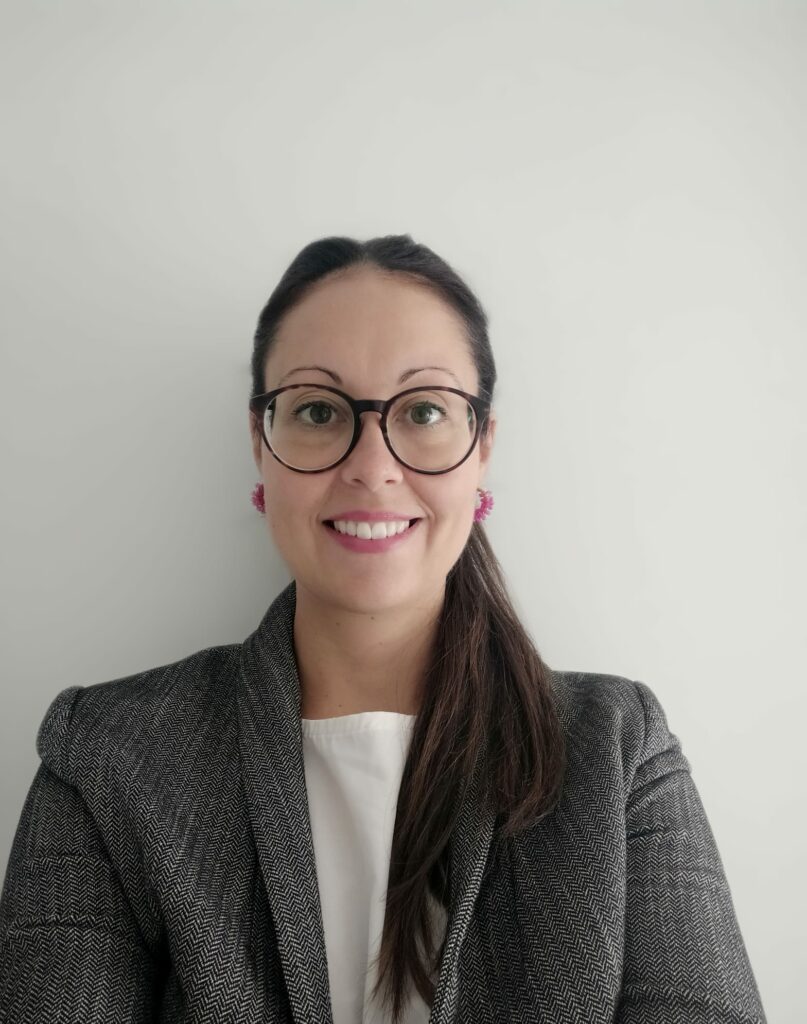
Valeria Tonioli holds a joint PhD in Language Sciences, with a specialization in educational linguistics, from the Ca’ Foscari University of Venice, and in Translation, Interpreting, and Intercultural Studies, from Universitat Autònoma de Barcelona.
She is currently a postdoctoral researcher at the Department of Translation and Interpreting and East Asian Studies at the Universitat Autònoma de Barcelona, where she works in the Horizon New Abc project regarding the education of minors with a migrant background.
Previously, she worked as a postdoctoral researcher at the Ca’ Foscari University of Venice in different national and international projects. Her research interests focus on intercultural communication, linguistic and cultural mediation, intercultural and multilingual education, and educational linguistics.
Claudia Vallejo

Claudia Vallejo Rubinstein holds a PhD in language teaching and is a senior research technician of the Horizon2020 project ‘NEW ABC’, led in Catalonia by the research group MIRAS. She is also a member of the research group on Education, Interaction and Plurilingualism GREIP from the Faculty of Education at UAB.
She combines research with teaching as an associate professor at the Primary Education Degree, and supervises master dissertations in the Official Master’s Degree in Teacher Training for Compulsory Secondary Education and Baccalaureate and in the Official Master’s Degree in Chinese Didactics for Spanish speakers, both at UAB. She has also conducted several seminars and teacher training modules on didactics of plurilingualism, linguistic and cultural diversity, gender perspective and critical discourse analysis in institutions of higher education and socio-educational programs.
She has participated in several local and international research and innovation projects on education in multilingual contexts, on childhood and citizenship and on social inequalities in education.
She has published and edited special issues in prestigious journals, including International Journal of Bilingual Education and Bilingualism, Language and Intercultural Communication and Bellaterra Journal of Teaching and Learning Language and Literature (indexed in quartile 1), among others.
Mireia Vargas-Urpí

Mireia Vargas Urpí is Serra Húnter associate professor in the Department of Translation and Interpreting and East Asian Studies at the Universitat Autònoma de Barcelona. She holds a PhD in Translation and Intercultural Studies by the same university, with a thesis on public service interpreting with the Chinese community in Catalonia. She teaches Chinese at the Translation and Interpretation Degree at the UAB.
She has been a member of the MIRAS group since its inception and has numerous publications co-authored with fellow members of the group. She has been PI of the project “Young natural interpreters: child language brokering in education, social services and health” (RTI2018-098566-A-I00, MCIU/AEI/FEDER, EU) and together with Marta Arumí has coordinated the strategic association EYLBID: Empowering Young Language Brokers for Inclusion in Diversity, funded by the Erasmus Plus program (European Commission 2019-1-ES01-KA201-064417). She is also a member of the TXICC and Gelea2LT groups. As for her research interests, she has mostly explored public service interpreting for the Chinese community, child language brokering, and Chinese teaching and learning enhanced by digital tools.